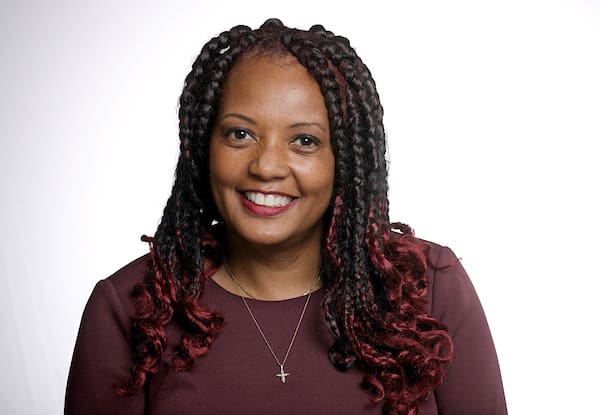Lipscomb Dedicated to Helping Online Students Succeed

As the director of online learning, Dr. Sharonda Lipscomb is a driving force to keep online students engaged, connected, and thriving at the University of Arkansas at Little Rock.
With the recent completion of her doctoral degree, Lipscomb is on a mission to bridge the digital divide and empower students with the tools they need to excel in their virtual academic journeys.
“I’m excited about not only my position but the opportunity to continue to improve the quality of online learning for students at UA Little Rock and beyond through my research,” Lipscomb said. “I continue to pursue conference presentations, research, and publication opportunities. I’m passionate about the online experience of students and want to continue to improve that.”
Lipscomb joined UA Little Rock in 2009 as a graduate assistant in the School of Education while she was pursuing a master’s degree in learning systems technology. From there, she worked as a Blackboard student support specialist and an instructional designer before becoming the director of online learning. She’s also served as an adjunct faculty member in the Learning Systems Technology Education Program and assists with the K-12 Online Teacher Academy, a grant funded program for student success initiatives for the program’s students.
Lipscomb’s co-workers and professors encouraged her to continue her education, and she has been working on a Ph.D. in Learning Technologies from the University of North Texas since 2016, a degree which she has recently completed after defending her dissertation this summer.
“It feels like I could always see light at the end of the tunnel,” she said. “I’ve had support all along the way from my supervisor, Dr. David Montague, my advisor, Dr. Mike Spector, classmates, and some friends on campus who were also working on their doctoral degrees. It makes you feel very accomplished and blessed to have that final victory.”
Throughout her doctoral studies, Lipscomb investigated the experiences of online students and how they connect with other students.
“I did a design-based research project to identify elements that support students in an online community,” she said. “We know students can connect during an online class, but I wanted to create a separate online space where students can connect outside of class. I surveyed students to look at their perceptions of community and connectedness and what tools and resources they would find useful in an online community.”
Prior to her doctoral coursework, Lipscomb created a prototype community for online students in the Learning Systems Technology Education Program at UA Little Rock. For years, online students have been using the community and giving their feedback on what works, what doesn’t work, and what’s needed to make it even better. This led to the subject of her dissertation research at the University of North Texas.
“The goal is that online students are brought together in this one community,” Lipscomb said. “We post all the most important information for our program, such as class syllabi, capstone project information, and portfolio requirements. The students have added information on book swaps, conferences, and job postings. We also have a virtual meeting room where students can connect with other online students.”
Lipscomb said that the creation of the student community could be especially helpful for doctoral students who are at the ABD (all but dissertation) level, meaning they have finished all their academic courses and are actively writing their dissertation.
“Students can feel isolated being online, but the dissertation phase can intensify that feeling of isolation,” she said. “Students who are writing their dissertation could benefit from regular writing sessions with fellow students and contact with student mentors who can give them advice on completing their dissertation. This gives these students a better sense of community as they matriculate their online programs.”
When Lipscomb’s research is complete, she plans to launch the online student community as a permanent resource for learning systems technology students at UA Little Rock. She will continue to observe the online community and get feedback from students and faculty with the goal of creating a template student community that can easily be replicated for online students in other academic departments and universities.
“There is additional research that I want to pursue because I want to improve the learning experience of students who are in online programs,” she said. “My passion is to ensure online students have the resources, support, and spaces they need to be successful.”
